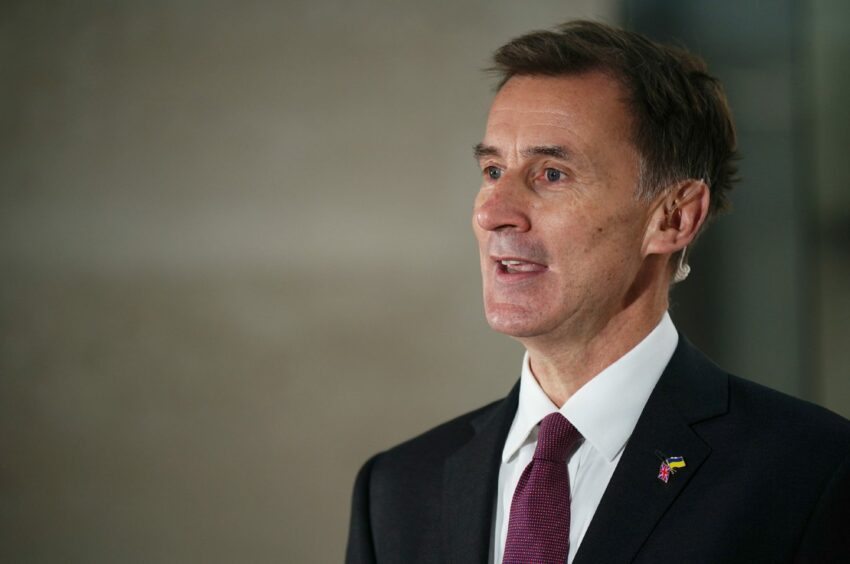
An expanded windfall tax undermines firms’ ability to invest in the North Sea, sector representatives told Chancellor Jeremy Hunt in a key meeting on Friday, though they failed to secure concessions.
Representatives from more than a dozen top producers, including Harbour Energy, BP, Shell, TotalEnergies and Ithaca Energy attended the Fiscal Forum meeting in Edinburgh, alongside the North Sea Transition Authority (NSTA) regulator and Offshore Energies UK (OEUK).
It follows the Chancellor’s Autumn Statement, in which tax rates on oil and gas producers enacted under the Energy Profits Levy (EPL) were increased by 10 percentage points to an additional 35%, and the policy extended from 2025 until 2028.
OEUK made clear that a key ask ahead of the meeting would be the imposition of some form of price floor, so that the EPL could be phased out if prices fall below a certain threshold – similar to a scheme currently in place for power producers.
The trade body said it also asked for a Treasury to help rebuild confidence in UK investment and deliver a “sustainable and competitive” fiscal regime.
Mr Hunt reportedly rebuffed the request for a floor, though a future revision to the levy was not ruled out should oil and gas prices slump, sources present at the meeting told Reuters.
While he recognised the sector’s contribution to energy security and the energy transition, the Chancellor told attendees that securing fiscal sustainability for the UK required “difficult decisions,” and that he was asking “those with the broadest shoulders” to contribute more.
Mr Hunt said he welcomed the constructive discussions and would look for further opportunities to engage with the sector, including through more regular Fiscal Forum meetings.
Speaking in the wake of the forum, OEUK chief executive Deirdre Michie said: “”This was a constructive meeting where the Chancellor heard concerns from industry as to why the extension of the Energy Profits Levy is a tax too far.
“We told him that the 75% tax rate will undermine the ability of energy producing companies to invest in the homegrown oil, gas and wind supplies we need. Without this, we will be less secure and will import more energy – while losing the benefits provided by the domestic industry in terms of taxes paid, jobs supported and investment in the wind and hydrogen projects.”
Ms Michie said Mr Hunt had “committed to reflect further” on proposals put forward by the sector, including its request that the EPL be unwound once oil and gas prices fall back to “normal levels”. This clause was included in the levy enacted under then Chancellor Rishi Sunak, but was removed when the policy was extended until 2028.
“At the moment our members produce nearly 40% of the nation’s gas. We can only maintain that kind of output by constant investment. We need to rebuild confidence so that the offshore industry can continue to provide energy for consumers now as well as building the low-carbon energy systems of the future,” she added.
Last month OEUK said the windfall tax increase put £200 billion of energy and low-carbon investments at risk, while TotalEnergies has said it plans to cut £100m of UK spending in 2023 – 25% of its planned investment for the year – due to the levy.
Recommended for you
